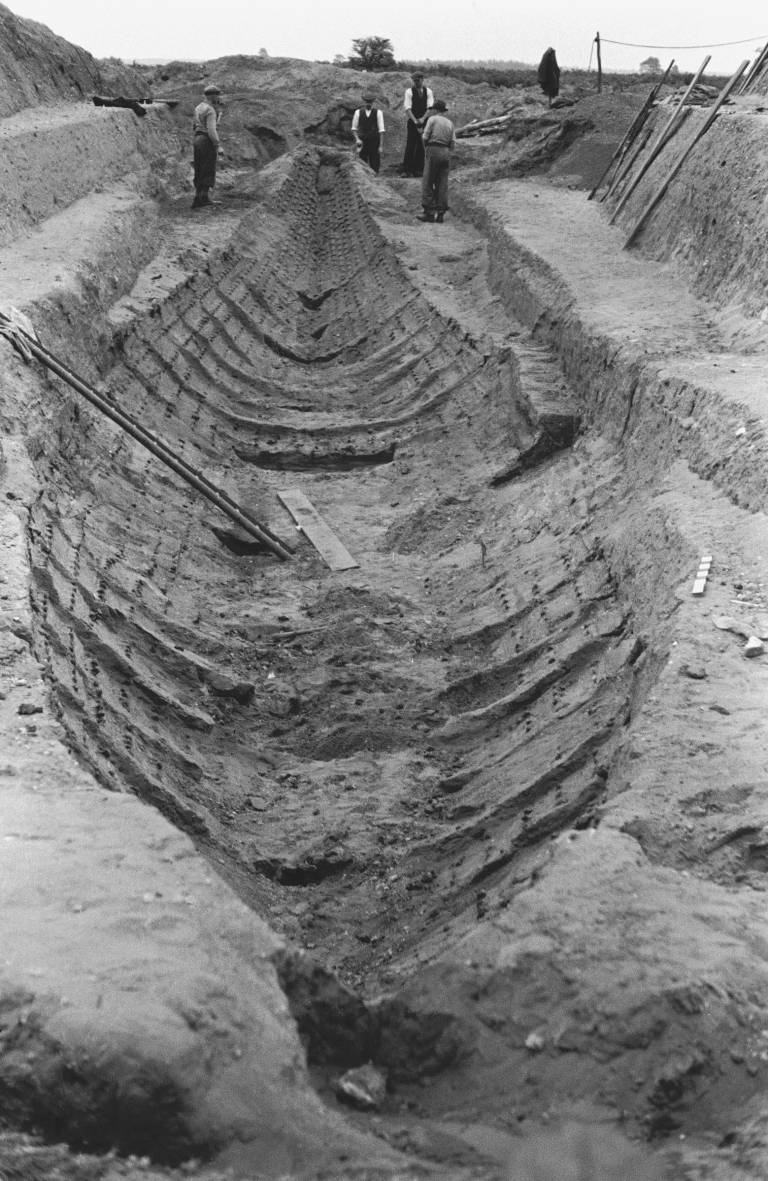Digging deeper: The True History Behind Netflix’s ‘The Dig’
13 May 2021, 6:00 pm–7:00 pm

Join our panel of experts as they discuss the real events of Sutton Hoo that inspired the BAFTA nominated film, 'The Dig'.
This event is free.
Event Information
Open to
- All
Availability
- Yes
Cost
- Free
Organiser
-
UCL Faculty of Social & Historical Sciences
Netflix historical drama The Dig centres around the famous Sutton Hoo excavation of an Anglo-Saxon burial ship in Suffolk, southern England, on the eve of the Second World War.
Considered to be one of the greatest archaeological discoveries of all time, this stunning find was revolutionary in historians’ understanding of the early Anglo-Saxon people who lived in medieval Britain.
Join our panel of experts as they discuss the real events of Sutton Hoo that inspired the BAFTA nominated film. We’ll also be reflecting on the remarkable response to the film by viewers, the balance between historical accuracy and dramatization, how archaeology is represented in the popular media and on TV, and how the team accessed British Museum archive material to recreate the burial.
Find out how UCL's Institute of Archaeology relates to the iconic dig and what it's actually like to be at an active dig site.
Image: Image of the excavation in 1939, Mercie Lack, © Trustees of the British Museum
Speakers
- Professor Sasha Roseneil is Dean of the UCL Faculty of Social and Historical Sciences, Pro Vice-Provost (Equity and Inclusion), and Professor of Interdisciplinary Social Science in the Institute of Advanced Studies.
- Dr Sue Brunning is Curator of the European Early Medieval Collections at the British Museum and is responsible for the finds from the Sutton Hoo ship burial. In 2019, Sue assisted the filmmakers of the Netflix film The Dig in their recreation of the iconic excavation. A UCL alumna, she gained her PhD from the Institute of Archaeology in 2013.
- Mark Roberts is Principal Research Fellow and Fieldwork Tutor at UCL’s Institute of Archaeology. Mark first directed excavations at Boxgrove, the site of Britain's oldest human remains, in 1982 and directed the Boxgrove Project until 2004. He has been Fieldwork Tutor since 2009, running the IoAs summer field courses and research excavation programme.
- Mercedes Baptiste Halliday is a second year Archaeology and Anthropology student at UCL, with a particular interest in African, South American and Caribbean Archaeologies. She also has a background in photography, film and arts organisation, and is hoping to further develop her interests in the filmic aspects of archaeology.
 Close
Close

